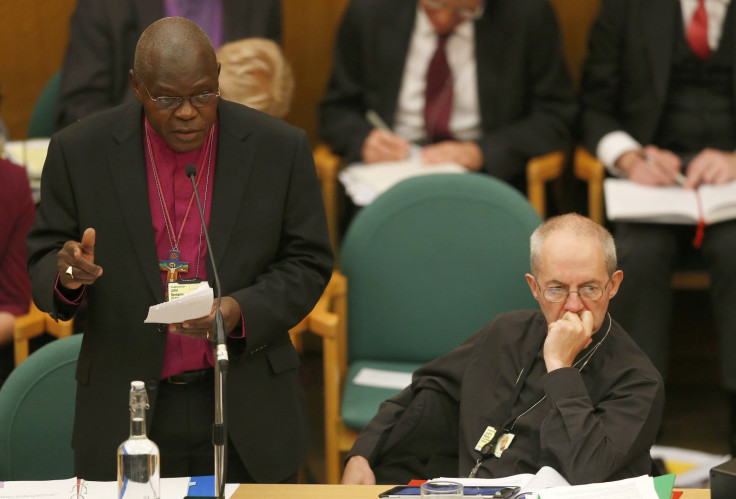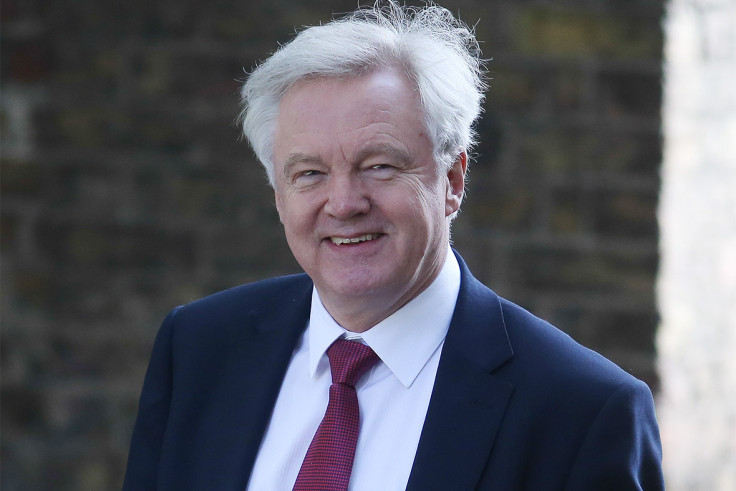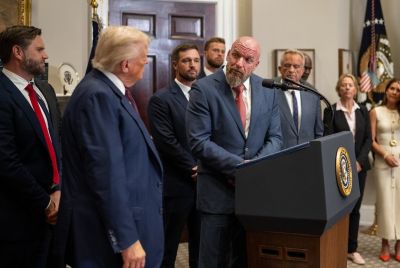Archbishop of York demands UK government drops 'threatening' Brexit language
Dr John Sentamu condemned 'fiery slogans' such as 'no deal is better than a bad deal'.
The UK government must drop its "confrontational and threatening" language as it continues its two-year-long Brexit talks with the EU, the Archbishop of York said on Wednesday 28 June.
The Church of England leader, second only to Justin Welby, the Archbishop of Canterbury, made the intervention in the House of Lords.
"Beyond government, in the latter's dealing with parliament, the media and the electorate, the approach needs to be more transparent and more broad based," Dr John Sentamu said.
"Conducting the negotiations in a positive and constructive tone requires the Government to ditch once and for all the 'confrontational and threatening' language that it has used since the referendum.
"Fiery slogans like 'no deal is better than a bad deal' might play well with eurosceptics, but they do little to build the partnership between the UK and the EU that the Government has always said is its fundamental objective.
"'No deal is better than a bad deal' – does that mean, for example, that we will cut all our diplomatic ties with the 27 remaining EU countries if we get 'a bad deal'? Is that what it means?"
The Archbishop was also the latest figurehead to call for a cross-party commission on the UK's split from the EU.
"We need however to recalibrate expectations that a new relationship with the EU can be negotiated by March 2019. Most experts hold that it is unlikely to be completed and ratified this side of 2025," he said.
"This is where we need a cross-party commission - maybe even a Royal Commission, akin to the Privy Council - to look creatively at possible options and to offer impartial but honest advice to the Government on the best transitory and final arrangements. Its size should not be too large."
The comments come after Theresa May faces post-election division within her cabinet over the government's Brexit approach.

Chancellor Philip Hammond, who backed Remain at the EU referendum in 2016, has called for a four year post-Brexit transitional period, while Brexit Secretary David Davis, a long-time Eurosceptic, has said that the UK will be outside of the EU's single-market and customs union by 2019.
Liberal Democrat leadership hopeful Sir Vince Cable, a former business secretary, has urged May to adopt Hammond's approach.
"The economic risk of an extreme Brexit is very real and its consequences would be felt by us all, from higher prices to less funding for our NHS and schools," he said.
"Even the Bank of England has admitted that it cannot prevent Brexit from making us all poorer.
"The best way to protect the pound, lift people's incomes and secure funding for our public services is to stay in the single market and customs union."
The annual social attitudes survey, published on Wednesday, found that the British public had become more Eurosceptic. The research revealed that that 75% (+10) of voters feel that the UK should either leave the EU or see Brussels' powers reduced if Britain stays in the bloc.

© Copyright IBTimes 2025. All rights reserved.





















